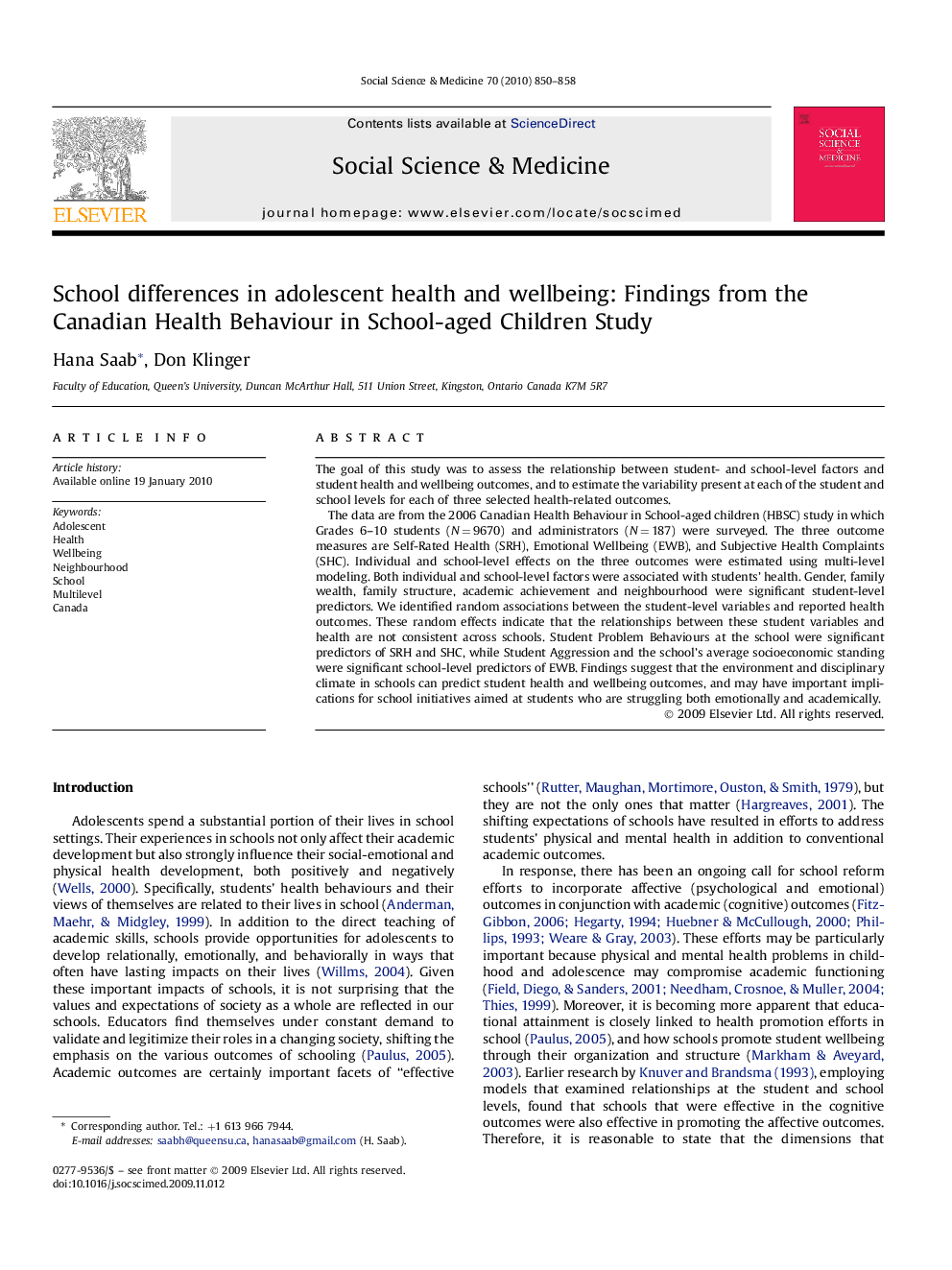| Article ID | Journal | Published Year | Pages | File Type |
|---|---|---|---|---|
| 10472006 | Social Science & Medicine | 2010 | 9 Pages |
Abstract
The data are from the 2006 Canadian Health Behaviour in School-aged children (HBSC) study in which Grades 6-10 students (NÂ =Â 9670) and administrators (NÂ =Â 187) were surveyed. The three outcome measures are Self-Rated Health (SRH), Emotional Wellbeing (EWB), and Subjective Health Complaints (SHC). Individual and school-level effects on the three outcomes were estimated using multi-level modeling. Both individual and school-level factors were associated with students' health. Gender, family wealth, family structure, academic achievement and neighbourhood were significant student-level predictors. We identified random associations between the student-level variables and reported health outcomes. These random effects indicate that the relationships between these student variables and health are not consistent across schools. Student Problem Behaviours at the school were significant predictors of SRH and SHC, while Student Aggression and the school's average socioeconomic standing were significant school-level predictors of EWB. Findings suggest that the environment and disciplinary climate in schools can predict student health and wellbeing outcomes, and may have important implications for school initiatives aimed at students who are struggling both emotionally and academically.
Related Topics
Health Sciences
Medicine and Dentistry
Public Health and Health Policy
Authors
Hana Saab, Don Klinger,
